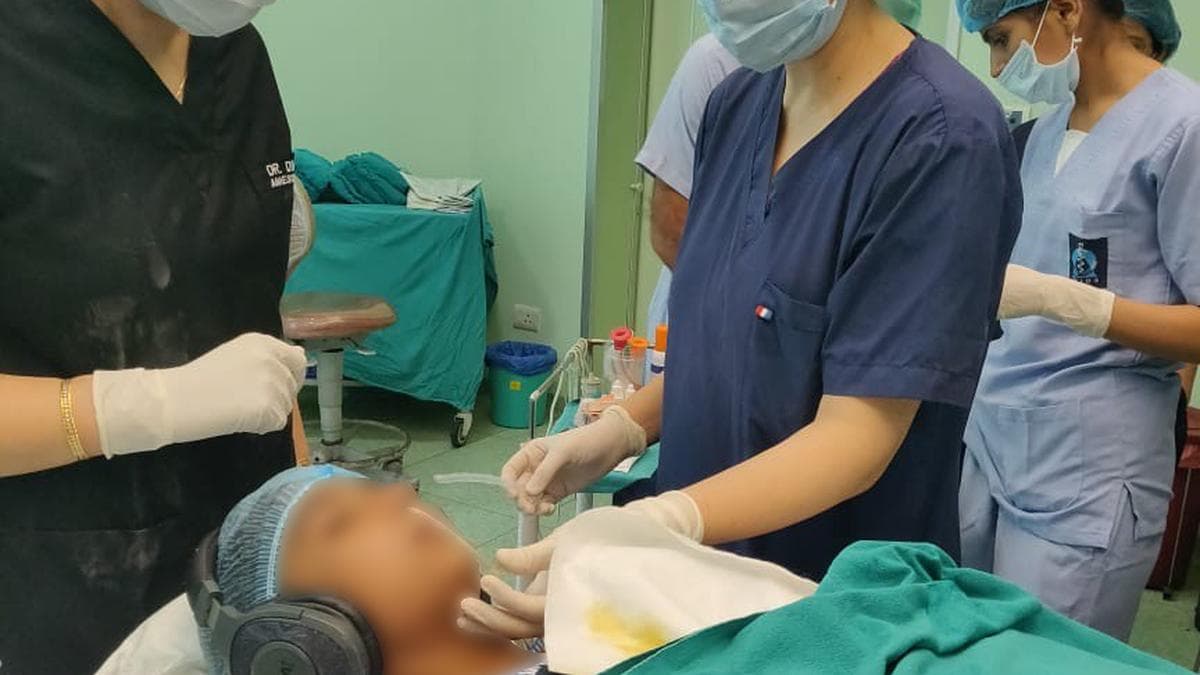We're loading the full news article for you. This includes the article content, images, author information, and related articles.
A new study from India shows playing music to patients under general anaesthesia can reduce the need for potent drugs and improve recovery times, a finding with potential cost-saving and patient-care implications for Kenyan hospitals.

NEW DELHI, INDIA – In a brightly lit operating theatre in Delhi, a patient undergoing gallbladder removal is unconscious under general anaesthesia. While a surgical team works, a subtle but potentially powerful intervention is underway: calming flute music plays through headphones fitted over her ears. According to a new peer-reviewed study, this simple addition could mean she requires lower doses of anaesthetic drugs and wakes up faster and more clear-headed.
The research, conducted at Delhi's Maulana Azad Medical College and published on Tuesday, 25 November 2025, in the journal Music and Medicine, provides compelling evidence that intraoperative music therapy can significantly reduce the need for drugs like propofol and fentanyl, a potent opioid painkiller. This non-pharmacological approach was also linked to smoother recoveries, more stable blood pressure during surgery, and lower levels of the stress hormone cortisol.
"Our aim is early discharge after surgery," stated Dr. Farah Husain, a senior anaesthesia specialist and certified music therapist who co-investigated the study, in a statement released around 27 October 2025. "Patients need to wake up clear-headed, alert and oriented, and ideally pain-free. With better pain management, the stress response is curtailed."
The study focused on patients undergoing laparoscopic cholecystectomy, a common and relatively short keyhole procedure to remove the gallbladder. Researchers designed a randomized controlled trial involving 56 adult patients. All participants received a standard five-drug anaesthetic regimen, but one group also listened to patient-selected calming instrumental music (either flute or piano) through noise-cancelling headphones.
The findings were significant. The group exposed to music required notably lower doses of both propofol for sedation and fentanyl for pain relief. The researchers theorize that even while a patient is unconscious, the brain's auditory pathways remain partially active. "You may not remember the music, but the brain registers it," explained Dr. Sonia Wadhawan, Director Professor of Anaesthesia and Intensive Care at the college. This implicit awareness appears to blunt the body's physiological stress response to surgery, which can otherwise cause spikes in heart rate and blood pressure, hindering recovery.
"By delivering intraoperative music, we're engaging the patient's nervous system even under anaesthesia—blunting the neuroendocrine stress response when the body is most vulnerable," added Dr. Husain. The study's lead investigator, Dr. Tanvi Goel, emphasized that this is "more than just simple background music, rather an integration of a novel intervention into anesthetic practice."
While this study was conducted in India, its findings have significant relevance for healthcare systems in Kenya and the wider East African region. Post-operative care in Kenya focuses on pain management, wound care, and preventing complications to ensure a swift recovery. Opioids and anaesthetics like propofol are mainstays in Kenyan operating theatres, just as they are globally. However, these drugs are not without risks, including potential side effects like nausea, respiratory depression, and, with opioids, the risk of dependency.
Reducing reliance on these medications could translate into tangible benefits for Kenyan patients and hospitals. Lower drug dosages can mean fewer side effects, leading to faster and more comfortable recoveries. This, in turn, could shorten hospital stays, a critical factor in a healthcare system where bed space can be limited. Furthermore, from a cost perspective, propofol and fentanyl represent a significant expense. A reduction in their use, however modest, could lead to considerable cost savings over time.
The concept of music therapy is not entirely new to Kenya, where music is deeply integrated into community life and healing traditions. A 2020 article in the Daily Nation highlighted a comprehensive review of nearly 7,000 patients which found music consistently reduced post-operative pain and anxiety. More recently, a piece in the Business Daily on 6 October 2025, argued for the formal integration of music therapy into Kenya's clinical frameworks, citing international examples of its cost-effectiveness in settings from ICUs to mental health. This latest study from India adds robust, specific evidence for its application within the operating theatre itself.
The Maulana Azad Medical College study joins a growing body of international research supporting the use of music in surgical settings. A major 2015 meta-analysis published in The Lancet, reviewing 72 trials and nearly 7,000 patients, found music significantly reduced post-operative pain and anxiety. Experts like Professor Wendy L. Magee of Temple University note that patient-preferred music enhances emotional impact, maximizing its neural effects and supporting recovery.
Implementing this practice requires minimal investment—primarily noise-cancelling headphones and a music player—making it a low-cost, high-impact intervention. As Kenyan healthcare facilities continue to adopt modern standards of care, as outlined in policies like the Kenya Health Policy 2014-2030, integrating evidence-based, non-pharmacological techniques like music therapy could be a valuable addition to post-operative protocols. It represents a patient-centered approach that not only improves clinical outcomes but also humanizes the often-intimidating environment of the operating room. Further local research would be required to tailor such an intervention to the Kenyan context, but the evidence suggests the potential benefits are too significant to ignore.
Keep the conversation in one place—threads here stay linked to the story and in the forums.
Sign in to start a discussion
Start a conversation about this story and keep it linked here.
Other hot threads
E-sports and Gaming Community in Kenya
Active 9 months ago
The Role of Technology in Modern Agriculture (AgriTech)
Active 9 months ago
Popular Recreational Activities Across Counties
Active 9 months ago
Investing in Youth Sports Development Programs
Active 9 months ago